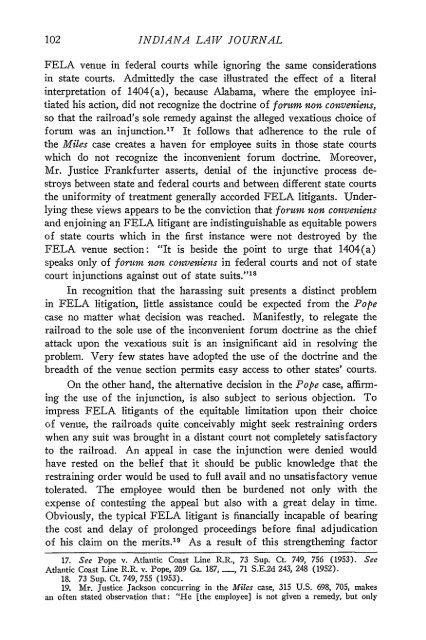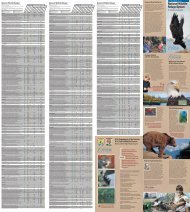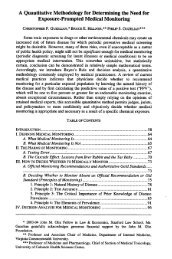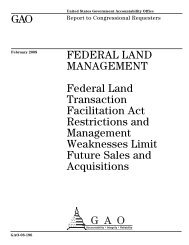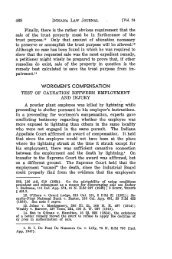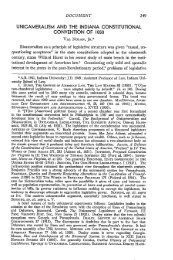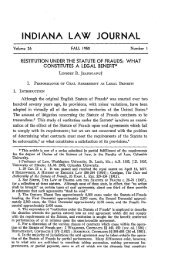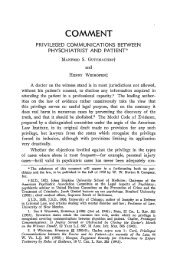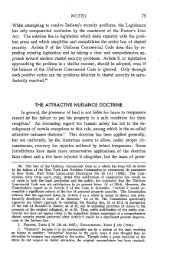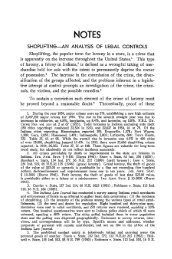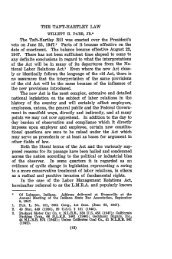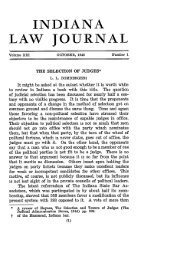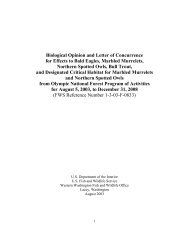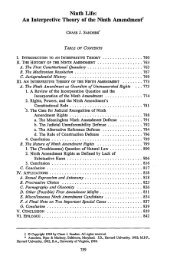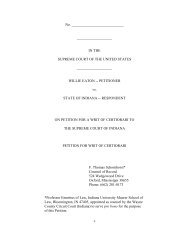fela venue abuse: necessity for congressional amendment
fela venue abuse: necessity for congressional amendment
fela venue abuse: necessity for congressional amendment
Create successful ePaper yourself
Turn your PDF publications into a flip-book with our unique Google optimized e-Paper software.
INDIANA LAW JOURNAL<br />
FELA <strong>venue</strong> in federal courts while ignoring the same considerations<br />
in state courts. Admittedly the case illustrated the effect of a literal<br />
interpretation of 1404(a), because Alabama, where the employee initiated<br />
his action, did not recognize the doctrine of <strong>for</strong>um non conveniens,<br />
so that the railroad's sole remedy against the alleged vexatious choice of<br />
<strong>for</strong>um was an injunction. 17 It follows that adherence to the rule of<br />
the Miles case creates a haven <strong>for</strong> employee suits in those state courts<br />
which do not recognize the inconvenient <strong>for</strong>um doctrine. Moreover,<br />
Mr. Justice Frankfurter asserts, denial of the injunctive process destroys<br />
between state and federal courts and between different state courts<br />
the uni<strong>for</strong>mity of treatment generally accorded FELA litigants. Underlying<br />
these views appears to be the conviction that <strong>for</strong>um non conveniens<br />
and enjoining an FELA litigant are indistinguishable as equitable powers<br />
of state courts which in the first instance were not destroyed by the<br />
FELA <strong>venue</strong> section: "It is beside the point to urge that 1404(a)<br />
speaks only of <strong>for</strong>um non conveniens in federal courts and not of state<br />
court injunctions against out of state suits." 18<br />
In recognition that the harassing suit presents a distinct problem<br />
in FELA litigation, little assistance could be expected from the Pope<br />
case no matter what decision was reached. Manifestly, to relegate the<br />
railroad to the sole use of the inconvenient <strong>for</strong>um doctrine as the chief<br />
attack upon the vexatious suit is an insignificant aid in resolving the<br />
problem. Very few states have adopted the use of the doctrine and the<br />
breadth of the <strong>venue</strong> section permits easy access to other states' courts.<br />
On the other hand, the alternative decision in the Pope case, affirming<br />
the use of the injunction, is also subject to serious objection. To<br />
impress FELA litigants of the equitable limitation upon their choice<br />
of <strong>venue</strong>, the railroads quite conceivably might seek restraining orders<br />
when any suit was brought in a distant court not completely satisfactory<br />
to the railroad. An appeal in case the injunction were denied would<br />
have rested on the belief that it should be public knowledge that the<br />
restraining order would be used to full avail and no unsatisfactory <strong>venue</strong><br />
tolerated. The employee would then be burdened not only with the<br />
expense of contesting the appeal but also with a great delay in time.<br />
Obviously, the typical FELA litigant is financially incapable of bearing<br />
the cost and delay of prolonged proceedings be<strong>for</strong>e final adjudication<br />
of his claim on the merits. 9 As a result of this strengthening factor<br />
17. See Pope v. Atlantic Coast Line R.R., 73 Sup. Ct. 749, 756 (1953). See<br />
Atlantic Coast Line R.R. v. Pope, 209 Ga. 187, _, 71 S.E.2d 243, 248 (1952).<br />
18. 73 Sup. Ct. 749, 755 (1953).<br />
19. Mr. Justice Jackson concurring in the Miles case, 315 U.S. 698, 705, makes<br />
an often stated observation that: "He [the employee] is not given a remedy, but only


